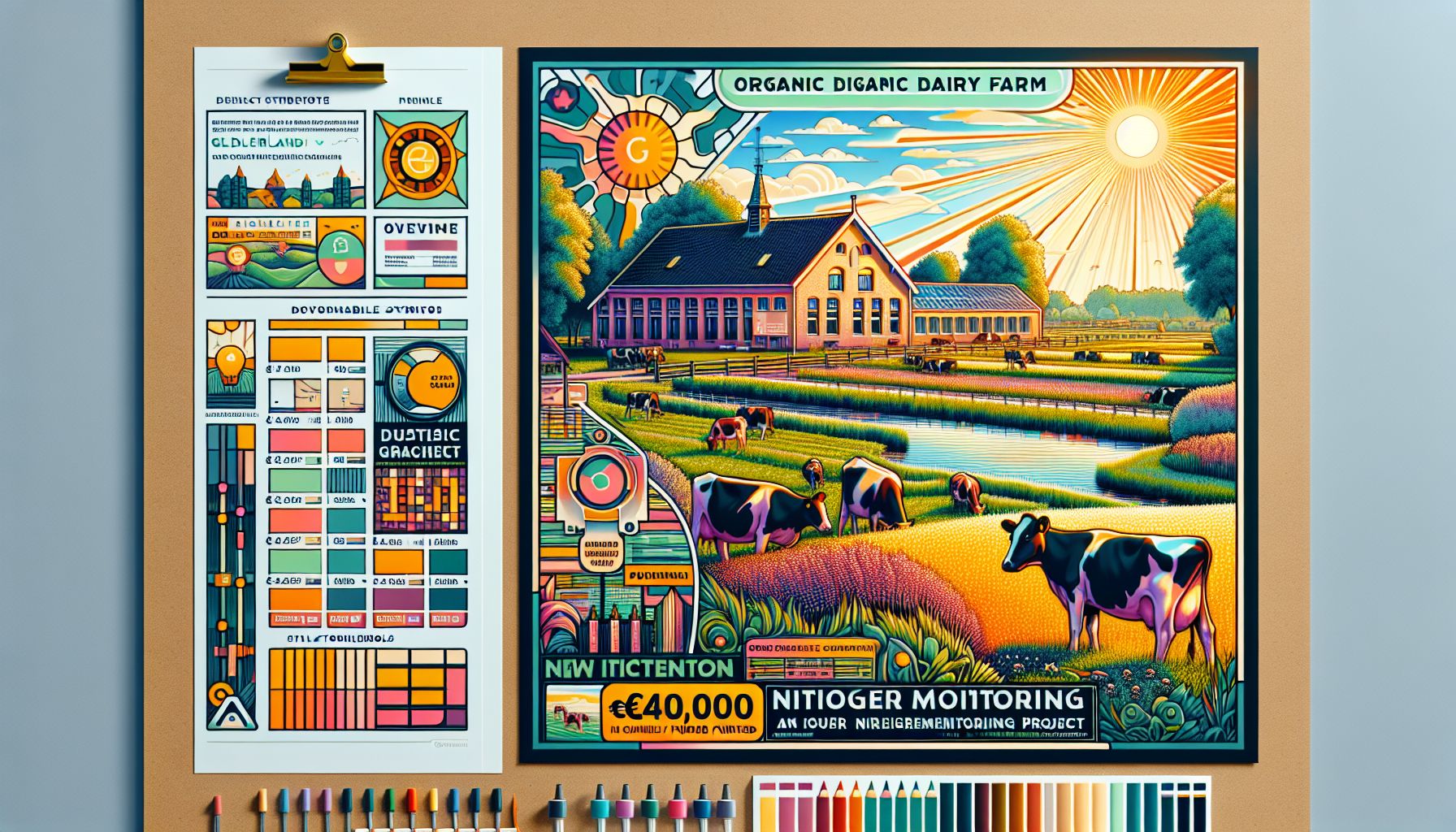Organic Dairy Farm Receives €400,000 Grant for Nitrogen Monitoring

Gelderland, Wednesday, 24 July 2024.
The province of Gelderland has allocated €400,000 for a FreeLifeStal in Zelhem, aimed at monitoring nitrogen emissions in organic dairy farming. This pilot project seeks to develop a monitoring and reward system tailored to organic dairy practices.
Introduction to the Innovation
This initiative falls under the agritech sector, focusing on sustainable agriculture and environmental health. The FreeLifeStal is an innovative agricultural structure designed to monitor and reduce nitrogen emissions in organic dairy farming. By implementing advanced monitoring systems, the project aims to provide valuable insights into nitrogen emissions, helping farmers optimize their practices and reduce their environmental impact.
Benefits of the FreeLifeStal
The benefits of this innovation are manifold. Firstly, it provides organic dairy farmers with detailed data on nitrogen emissions, enabling them to make informed decisions to enhance their sustainability efforts. Secondly, it supports the broader goal of reducing ammonia and nitrogen emissions, which are significant contributors to environmental pollution. This reduction not only benefits the local ecosystem but also aligns with global efforts to combat climate change. Finally, the initiative encourages the adoption of best practices in organic dairy farming, potentially leading to increased efficiency and profitability for farmers.
How the Monitoring System Works
The BioMonitor system, central to the FreeLifeStal, employs a combination of sensors and data analytics to track nitrogen levels in real-time. These sensors are strategically placed within the dairy farm to capture comprehensive data on nitrogen emissions. The data collected is then analyzed to identify patterns and sources of emissions. This real-time monitoring allows farmers to implement immediate corrective measures, thereby reducing overall emissions. Additionally, the system includes a reward mechanism that incentivizes farmers to maintain low emission levels by offering financial or other benefits.
Key Players and Collaboration
The pilot project is a collaborative effort involving several key organizations. Wageningen University & Research (WUR) and the Louis Bolk Institute (LBI) are leading the research and development aspects. These institutions bring extensive expertise in sustainable agriculture and environmental science. Partnering with them are De Natuurweide and Biohuis, two prominent associations representing organic dairy farmers. This collaboration ensures that the project remains closely aligned with the practical realities and needs of the farming community. The project is based in Zelhem, Gelderland, Netherlands, where the FreeLifeStal will be constructed.
Broader Implications and Future Prospects
The success of the FreeLifeStal pilot project could have far-reaching implications for the organic dairy sector and beyond. If proven effective, the BioMonitor system could be scaled and adapted for use in other regions and types of agriculture. This would contribute significantly to global efforts to reduce agricultural emissions and promote sustainable farming practices. Furthermore, the data and insights gained from this pilot could inform policy decisions and regulatory frameworks aimed at mitigating environmental impacts of farming. The project represents a proactive step towards a more sustainable and environmentally responsible agricultural industry.

